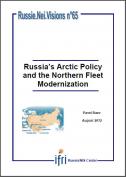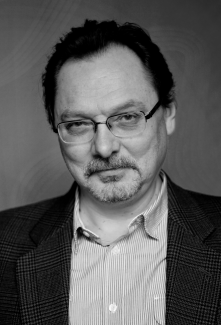Russia's Arctic Policy and the Northern Fleet Modernization

The interplay of the foreign, domestic and military dimensions of Russia's Arctic policy is characterized by peculiar incompatibilities. The position of power secured by the military superiority and ambitious modernization of strategic forces is supposed to grant Moscow strong influence and tangible advantages in the Arctic relations.
In fact, military build-up generates suspicions among neighbors in the Arctic and has prompted them to urge NATO to pay more attention to the former “Northern flank”. The heavy concentration of naval units and military-industrial enterprises in the Murmansk and Arkhangelsk regions is supposed to make them into a solid support base for the regime of president Vladimir Putin, while in reality problems with Armed Forces reform have produced discontent in the ranks and problems with financing the shipbuilding program lead to social tensions.
The official talk about expanding Arctic cooperation and opening the Northern Sea Route is increasingly met with disbelief in North-Western Russia, where any protest acquires “strategic” importance due to high attention from the Nordic neighbors and implicit involvement of, or impact upon the Northern Fleet.
Download the full analysis
This page contains only a summary of our work. If you would like to have access to all the information from our research on the subject, you can download the full version in PDF format.
Russia's Arctic Policy and the Northern Fleet Modernization
Related centers and programs
Discover our other research centers and programsFind out more
Discover all our analysesThe Caspian Sea as an Emerging Energy Hub : Potentials and Limitations
This report analyzes the prospects of the Caspian Sea region — and its key actors except for Russia and Iran — becoming an important energy hub serving the needs of the European Union (EU).
The European Union's Strategic Test in Georgia
The political crisis brewing in Georgia is of an existential nature for the country. What is at stake is Georgia's future as a democratic and sovereign European nation (EU).
Commanders of Putin's Long War: Purged, Reshuffled and Disgruntled
The trend of reshuffling the Russian top military command in the course of a fast-evolving and far from successful war has progressed unevenly both across the Armed Forces’ structures and in time. The rationale for and timing of the abrupt cadre decisions made by Commander-in-Chief Putin often defy logical explanation, and the rare official clarifications are no more informative than the usual information blackout.
Russian Military Manpower After Two and a Half Years of War in Ukraine
In addition to a military victory in Ukraine, the Russian leadership is planning to build up sizable troop formations for a possible conflict with NATO in the Baltic region and the Kola Peninsula. In particular, current plans aim for the military manpower to grow by about 350,000, reaching a total of 1.5 million soldiers and commanders. In the context of the current conflict in Ukraine, this cannot be accomplished without a new wave of mass mobilization.











